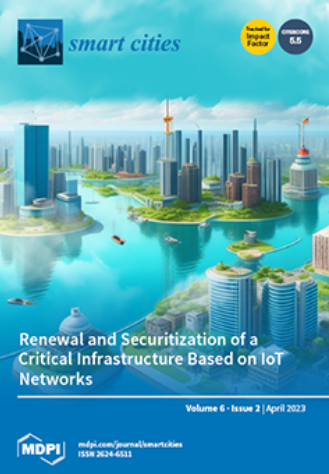The Implications of a Co-Created Software Solution for Mobility in Rural Areas
IF 5.5
Q1 ENGINEERING, ELECTRICAL & ELECTRONIC
引用次数: 0
Abstract
This paper explores the challenges in providing digital services of general interest in rural areas and proposes co-created ride-sharing software solutions to address the specific needs of these regions. This applied research is part of the Smarte.Land.Regionen project, which aims to improve digital public services at the district level. Focusing on rural mobility, the paper introduces ride-sharing benches enhanced with software as a possible low-threshold solution. Via workshops, surveys, and market research, the study identifies barriers to the adoption of ride-sharing benches and investigates factors contributing to their success. The software will be developed in an agile process together with partner counties and applied in a real-world case study. The proposed software solution emphasizes user-centered development, the geographical location of benches, and the prioritization of ride requests over ride offers. The findings highlight safety concerns, a lack of reliability, and the importance of obtaining people who are theoretically interested in solutions to actively participate in them. The paper emphasizes the importance of collaborative development with county stakeholders while also acknowledging the inherent limitations as the overall process becomes more complex and organizational obstacles arise. In addition, the findings suggest that the current state of rural mobility cannot be fundamentally changed by the implementation of ride-sharing software alone. Future research should focus on sustaining and scaling digital solutions, measuring their impact on rural mobility, and ensuring their transferability to other regions. The goal is to contribute to inclusive and sustainable rural development by improving access to digital public services and promoting the adoption of tailored mobility solutions.共同创建的软件解决方案对农村地区移动性的影响
本文探讨了在农村地区提供普遍感兴趣的数字服务所面临的挑战,并提出了共同创建的乘车共享软件解决方案,以满足这些地区的具体需求。这项应用研究是smart . land . regionen项目的一部分,该项目旨在改善地区一级的数字公共服务。针对农村交通问题,本文介绍了一种可能的低门槛解决方案,即通过软件增强拼车长椅。通过研讨会、调查和市场研究,该研究确定了采用拼车长凳的障碍,并调查了促成其成功的因素。该软件将与伙伴国一起在敏捷过程中开发,并应用于现实世界的案例研究。提出的软件解决方案强调以用户为中心的开发,长凳的地理位置,以及乘车请求优先于乘车提供。研究结果强调了安全问题,缺乏可靠性,以及让理论上对解决方案感兴趣的人积极参与其中的重要性。本文强调了与国家利益相关者合作发展的重要性,同时也承认随着整个过程变得更加复杂和组织障碍的出现,存在固有的局限性。此外,研究结果表明,仅通过实施拼车软件无法从根本上改变农村交通的现状。未来的研究应侧重于维持和扩展数字解决方案,衡量其对农村流动性的影响,并确保其可转移到其他地区。目标是通过改善数字公共服务的可及性和促进采用量身定制的移动解决方案,促进农村包容性和可持续发展。
本文章由计算机程序翻译,如有差异,请以英文原文为准。
求助全文
约1分钟内获得全文
求助全文
来源期刊

Smart Cities
Multiple-
CiteScore
11.20
自引率
6.20%
发文量
0
审稿时长
11 weeks
期刊介绍:
Smart Cities (ISSN 2624-6511) provides an advanced forum for the dissemination of information on the science and technology of smart cities, publishing reviews, regular research papers (articles) and communications in all areas of research concerning smart cities. Our aim is to encourage scientists to publish their experimental and theoretical results in as much detail as possible, with no restriction on the maximum length of the papers published so that all experimental results can be reproduced.
 求助内容:
求助内容: 应助结果提醒方式:
应助结果提醒方式:


